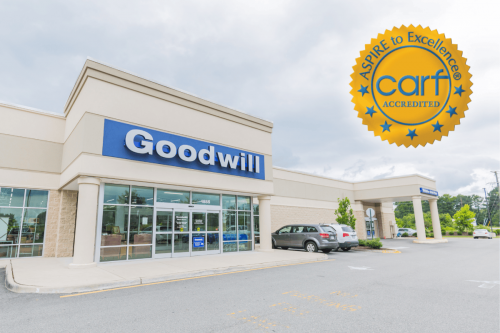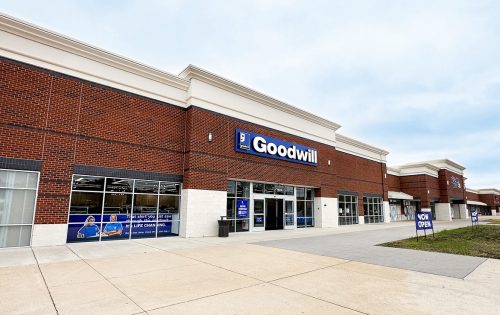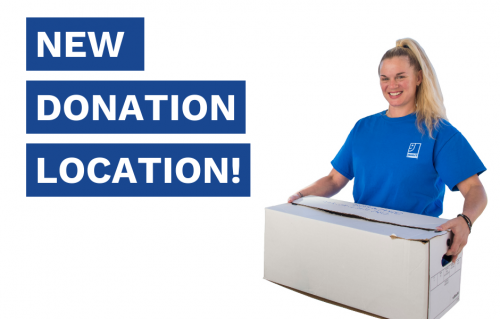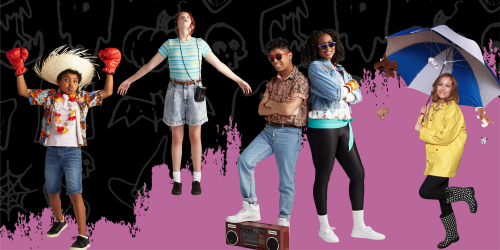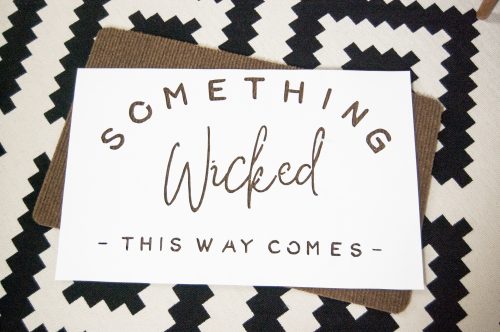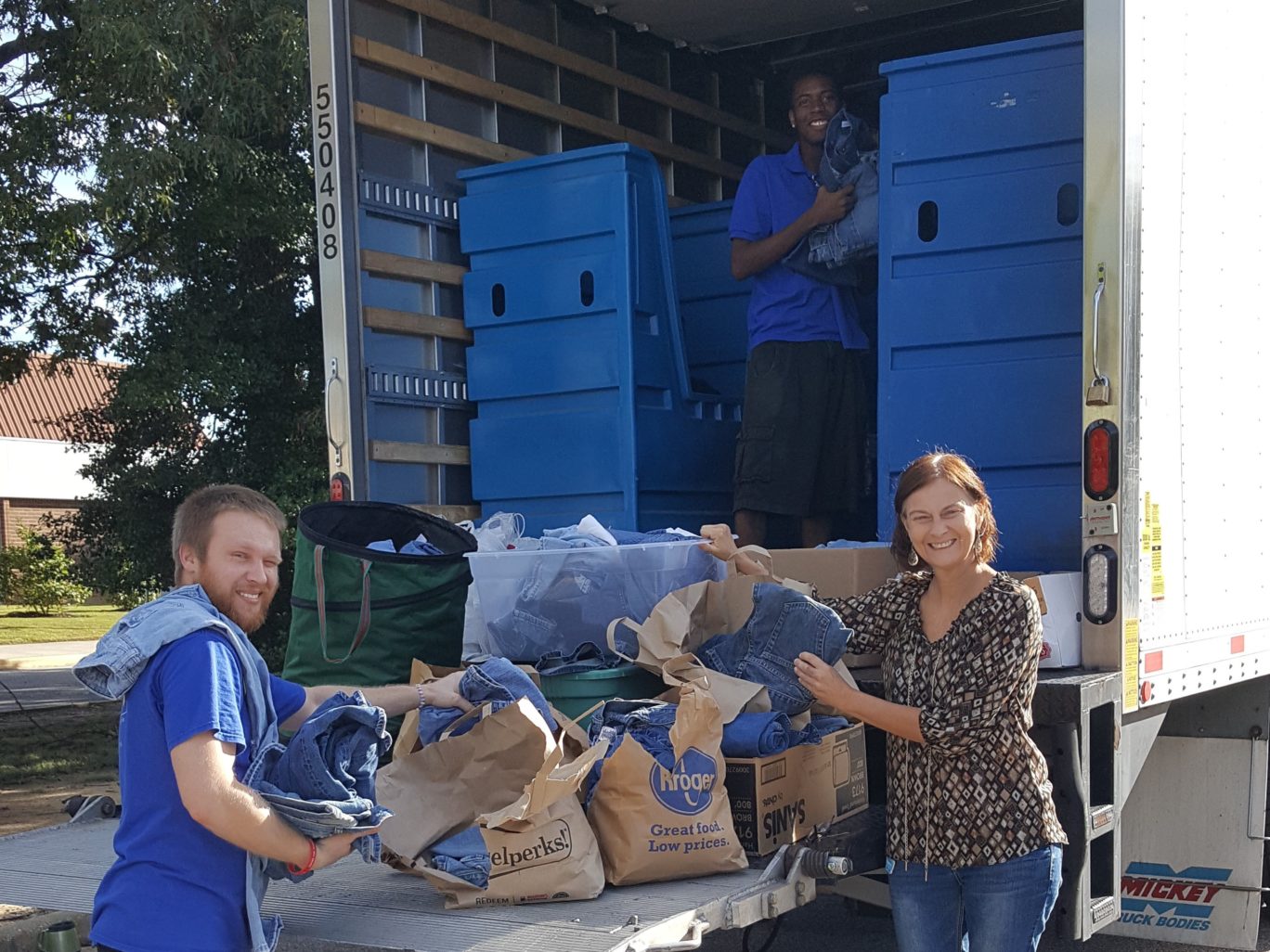
GOODWILL AS A GOOD STEWARD
February 17, 2020HOW ENVIRONMENTALLY FRIENDLY PRACTICES PROPEL OUR MISSION?
Goodwill has been environmentally and socially responsible, adhering to the ‘Triple Bottom Line of People, Planet and Prosperity’ – since before the term existed. The social enterprise was founded on sustainable principles in 1902, when Edgar J Helms began collecting salvage materials which were then repaired to resell. This process creates less waste, provides jobs in the community, and directs profits back into his vision of giving people a ‘hand up, not a hand out.’
Today, donated goods are the life blood of Goodwill’s operations. Donations are highly valued and every effort is taken to monetize these gifts from the community in order to fund mission services and keep items out of landfills. The generous donations from individuals throughout central and coastal Virginia last year helped Goodwill place more than 2,600 individuals into employment with hundreds of local employers.
THE LIFE CYCLE OF A DONATION
In 2019, Goodwill processed more than 56 million pounds of donations, diverting more than 40 million pounds from landfills. As shown in the graphic below, donations are processed through Goodwill’s retail systems efficiently and given multiple opportunities to sell. First being sorted by quality, goods are divided between retail stores, outlets and auctions, with the lowest quality products going straight to salvage if applicable. Post the three-week retail rotation, goods are moved to outlets or auctions for a second chance to be sold, before moving to Goodwill’s salvage operations.
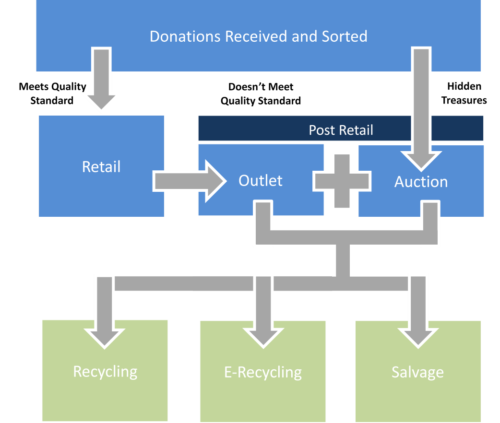
SALVAGE OPERATIONS
Goodwill’s salvage operations are massive, sorting and bailing thousands of pounds every day to be sold by the tractor-trailer load. Textiles are bailed into bundles weighing 1,000 to 1,200, while other products are broken down by category. In 2019, Goodwill sold 17.4 million pounds of textiles, 1.7 million pounds of shoes/belts/purses/toys/hats and 2.7 million pounds of books on the salvage market.
Recycled products like textiles can be found in many everyday goods, including cushions, insulation, plastics, even as fill in the asphalt on highways. Some fabrics, such as denim, can also be re-constituted into new fabrics.
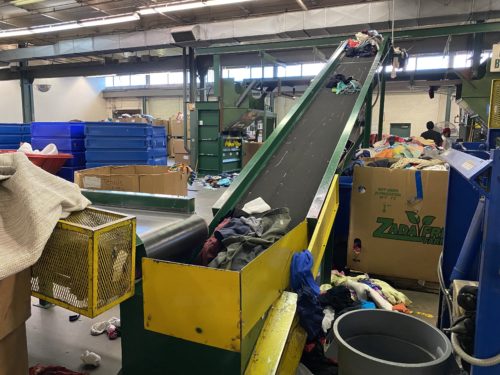
RECYCLING ELECTRONICS
The quantity of e-waste produced annually continues to skyrocket. In response to this growing problem, Goodwill partnered with Dell Reconnect. Nationwide there are over 2,000 Goodwill partners involved in this operation. In central and coastal Virginia, Goodwill resold or recycled 870,000 pounds of electronics last year, keeping the components and the toxic materials they have produced out of our environment.
As part of the Dell partnership, training is provided to associates on how to safely and securely refurbish and sort electronics. Any items that can’t be sold are shipped to Dell, when products are broken down further for recycling.
Watch this video to see more about how this partnership works.
ENVIRONMENTALLY CONSCIOUS PRACTICES
Internally, Goodwill has multiple sustainable practices. All cardboard we receive through donations or organization operations are processed and bailed to be recycled, in 2019 that amounted to almost half a million pounds of material.
Goodwill also uses green-cleaning methods and is certified with honors by the Worldwide Cleaning Industry Associations for these operations. At all our facilities and in the janitorial services provided to U.S. Government and State agencies, bleach and ammonia-free products are used. These are not only better for the environment, but also protect associates from breathing in these chemicals during their daily work activities.
SUSTAINABLE PARTNERSHIPS
Beyond integrated sustainable operations, Goodwill partners with organizations in the community to find the best use for all donated products. Partners like the F.R.E.E. Foundation of Virginia utilize space within Goodwill’s Richmond facility to sanitize and restore mobility equipment, which is then made freely available to under or non-insured individuals. In 2019, Goodwill helped serve 486 people with life changing mobility equipment, all free of charge.
Goodwill also partners with the Lions Club to distribute eye glasses to those in need, and with local schools to provide free books. Last year, Goodwill donated 112,130 free books to local public schools.
Each year, Goodwill participates in school denim drives and campus move-out events, providing further opportunities for the community to find purpose for their gently used clothing and goods. Events like these, that divert thousands of pounds of donations from landfills annually, earned Goodwill the Virginia Recycling Association’s best in Show Award in 2019.
For more information on Goodwill’s sustainable practices, contact Russ Rainer at Russ.Rainer@GoodwillVirginia.org.






